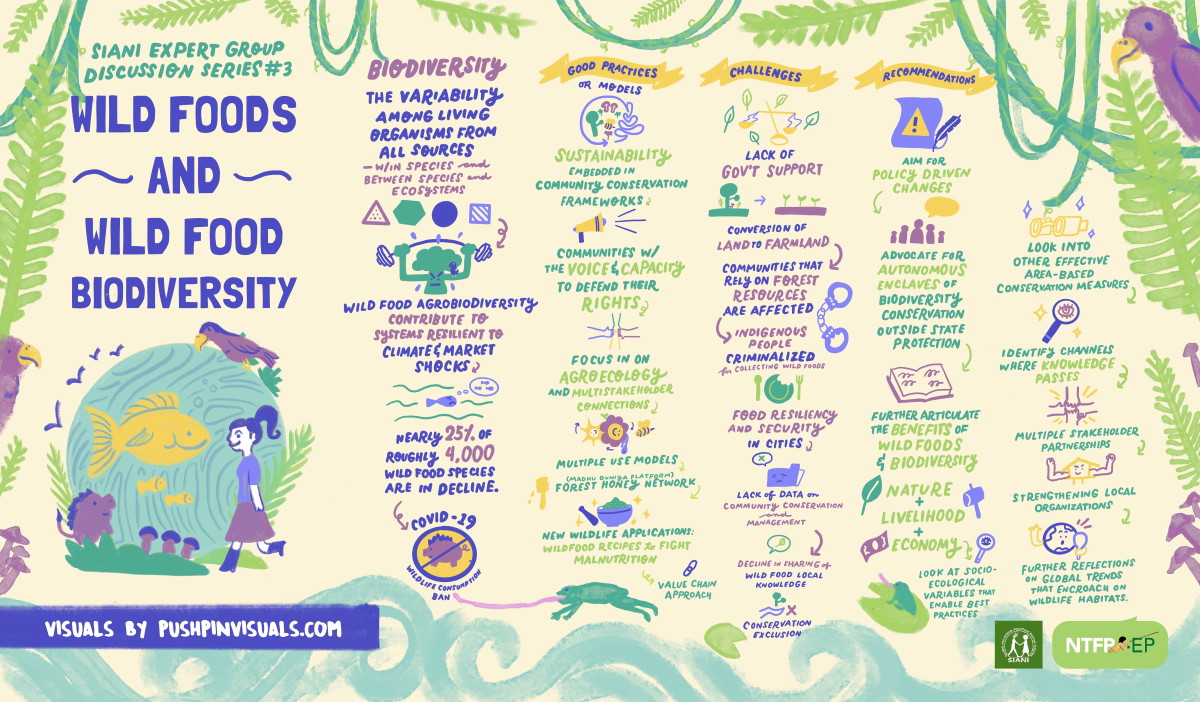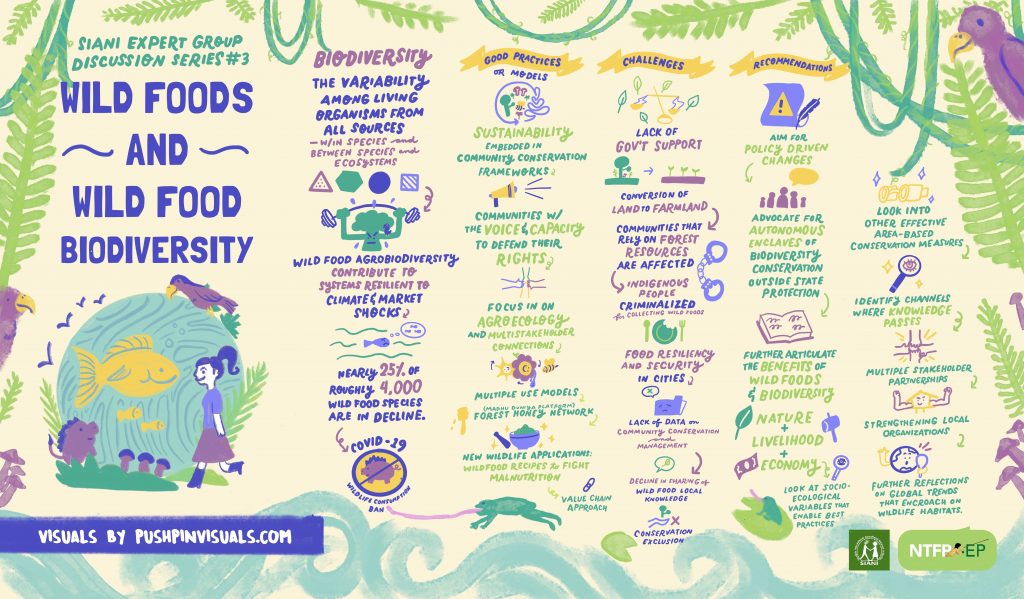Wild foods and biodiversity take center stage as the main themes of the third installment of the four-part discussion series organized by the SIANI Expert Group on Wild Foods, Biodiversity and Livelihood.
Last August 18, 2020, Dr. Denise Matias, a research scientist at the Institute for Social-Ecological Research (ISOE) in Frankfurt, NTFP-EP Research Associate, and a member of the Expert Group Steering Committee, led the dialogue on wild foods and biodiversity.
She began with a presentation about the importance and contribution of wild foods to biodiversity, pointing out the irony that despite the availability of a variety of species for food, less than 200 varieties are eaten. In the face of conservation exclusion and increasing pressure on natural habitats of wild food species, it seems that the future of food is under severe threat.
Matias talked about challenges to wild foods at the global and local level. For instance, data on wild food species is hard to find, particularly nutritional and conservation data. There is a decline in local ecological knowledge about wild foods as most youths migrate out of their ancestral domains and lands and into urban centers. There is a need to revive interest and engagement of the youth in wild foods knowledge and traditions. Finally, she mentioned challenges in relation to diseases such as COVID-19, which has led to some conservationists and government to propose bans on wildlife consumption.
Teddy Baguilat Jr., Expert Group member and Global ICCA Consortium President, and Claudia Binondo, Expert Group Dialogue Partner from the ASEAN Centre for Biodiversity, were invited to provide insights and reflections on the sustainable use of wild foods and the contribution of wild foods to biodiversity in the context of the pandemic. Both expressed the need for further reflection on wildlife bans and the need for quick action given the rate of biodiversity loss and forest deforestation and degradation worldwide.
After the plenary session, mini-workshops in the form of breakout sessions were introduced. Participants were able to continue conversations on the topic. The groups were given 45 minutes to discuss models and good practices, challenges and recommendations before reporting back to the plenary.
The session was participated in by 33 participants composed of members and dialogue partners from the Expert Group, as well as independent researchers and advocates. Institutions that were present during the session include representatives from:
- NTFP-EP Asia, India, Indonesia, Malaysia and Philippines
- Global ICCA Consortium
- ASEAN Centre for Biodiversity
- University of the Philippines Los Baños
- University of Georgia Athens
- Stockholm Resilience Centre
- Asia Indigenous Peoples Pact
- Dhaatri Trust
- Green Shoots Foundation
- Institut für sozial-ökologische Forschung – Germany
- Center for Indigenous Knowledge Research and Development – Vietnam
The session was closed by Expert Group Leader and NTFP-EP Asia’s Executive Director, Femy Pinto, who announced that outputs from the discussion series will be used to inform and build a concept for a regional policy dialogue that is envisaged to target policy makers in the region, possibly even the Convention of Biological Diversity, where there are entry points where we can include these inputs.
The Expert Group, led by NTFP-EP Asia in partnership with SIANI, organized the discussion series as part of efforts to consolidate traditional and ecological knowledge on wild foods and build a network of multi-stakeholder actors working on the area of wild foods, forests and inclusive conservation.
Read the transcript of the presentation here.
Do you want to share your wild food story? Contribute to our online campaign!





